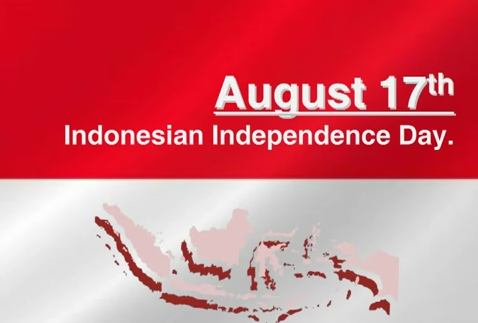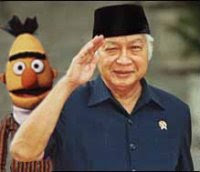I've been given the
onerous task of composing this month's Afterthought and of offering up a
Westerner's "perspective" on the state of the country as Independence
Day rolls around for the sixty-eighth time. Why onerous? Because, like all
attempts to pigeonhole people by their skin colour or geographical origin, I
find the very concept to be flawed. I am a Westerner, granted, and have lived
in this country for some years now, however my perceptions and conclusions have
often differed from those espoused by other "bules" that I have met
on my travels, and thus any concept of a Western perspective should be taken
with a pinch of salt.
And surely the same thing
applies to the notion of a unifying Indonesian perspective, as flags ascend
poles and lip service is paid to freedom across the archipelago this month.
Patriotism can be seen in this context as a flag being drawn over the real
issues that matter to people here: inequality, social justice, women's rights,
poverty, sectarian turmoil and a kleptocratic political elite who promulgate an
agenda of so-called transnational “globalisation”, which essentially amounts to
the world's powerful governments pushing trade deals and other accords down the
throats of the people to make it easier for corporations and the wealthy to
dominate the economies of nations around the globe without having obligations
to the people of those nations. Far easier to salute the flag than to address
that little lot.
Proud to be Indonesian or
American or Chinese on a priori grounds? Well being born in a certain country
isn't a skill, it's a genetic accident. As the legendary George Carlin
explains, "You wouldn't be proud of having a predisposition for colon
cancer." Far better that people take pride in things that they've actually
done and of how they comport themselves in a moral way.
Such knee-jerk nationalism
is propagated all over the world though. Even in America, for example, the
so-called “Land of the Free”, the term anti-American is often bandied about
willy-nilly. This is a very odd category indeed to be pressing into service in
a supposedly democratic country which embraces the concept of free speech, and
is basically a phrase that is totalitarian in nature. I mean, the Soviet Union
had a concept of anti-Sovietism, while the fascist Brazilian generals in the
1970s had a notion of anti-Brazilianism, through which they terrorised the
population into marching in lockstep. But try going to Sweden and talking of
anti-Swedenism. People will laugh at you.
The primary goal of such
my-country-right-or-wrong rhetoric is to divert people away from pressing their
demands in the political arena and from gaining a deeper understanding of how
political power can change and how it affects their lives. And indeed it does
change. Indonesia's first president, Soekarno, alongside colleagues such as
Mohammad Hatta and Sutan Sjahrir, were the men primarily responsible for
declaring Indonesia’s independence in the first place, and they offered a
political blend of Islamic-tinged socialism that differs wildly from the
Indonesia of today.
Espouse the ideas of
these founding fathers at any point since the CIA-backed rise to power of
Suharto through to the present though and you're more likely to feel the
jackboots of the organisations examined in Joshua Oppenheimer's Oscar-tipped
"The Act of Killing" on your throat. So what does it then mean to be
a patriotic Indonesian? Social justice? Democracy? These values are indeed
enshrined in the country's "five moral principles" of Pancasila, principles
that people still learn by rote in the country’s schools to this day. Simply
waving flags once a year will not help to strengthen values such as these
though, values which are, in fact, truly universal.





